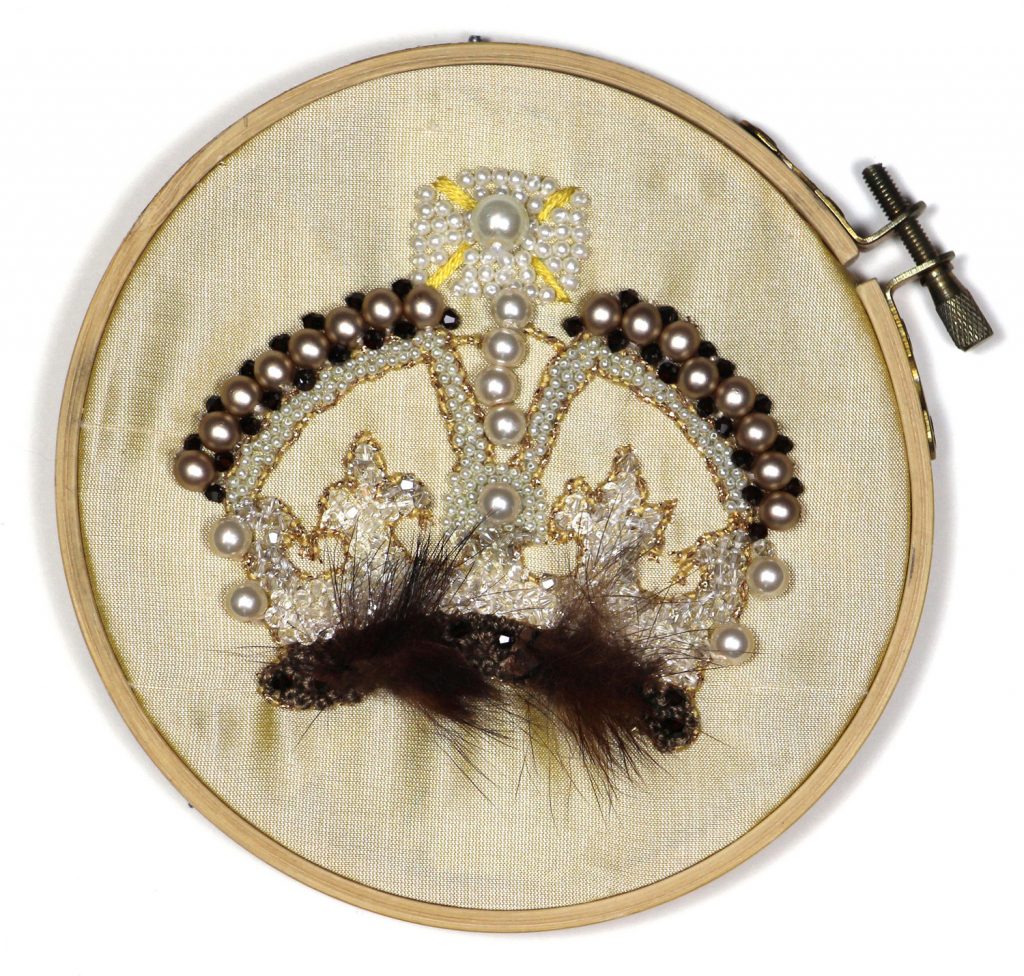Fina Fichera, embroidery, City of Melbourne, coat of arms, 2012, Royal Melbourne, City Gallery
Summary
This is one of a suite of 40 embroideries and working pieces by Melbourne-based Fina Fichera. Created over 2011–12 as an informal commission and shown in ‘Royal Melbourne’, a City Gallery exhibition curated by Robyn Annear in 2012, the beautifully stitched and beaded works were donated to the Art and Heritage Collection by the artist following the exhibition.
For this suite, Fichera exercises her needle in an extended meditation on the city’s coat of arms – its emblems and its historical formation and associations. Picking apart the arms to show some of its several elements in various iterations, she reworks the official emblem – devised in 1842 by the city’s founding men, councillors and aldermen – through a practice that is traditionally feminine and domestic. The arms presents the city’s initial industries – wool, tallow (beef fat), whale oil and shipping – within the confines of a shield. But through her idiosyncratic depictions, Fichera frees these from the economic advancement narrative, returning them from the condition of ‘product’ to sentient being, or a ship in the case of the latter, and each the master of its own space. The kangaroo too, traditionally atop of the shield, and the royal crown, at the shield’s centre, are freed from the trappings of the city’s arms to open up meaning and appreciation.
But if Fichera redresses a masculinist founding narrative, so too does she disrupt the stifling containment and expectations of femininity, policed by generations of women in the Sicilian culture from which she comes. Her embroideries are not ordered, precise and symmetrical examples of needlework bound to function rather than display, closeted away in personal trousseaus; as a provocative response to this tradition, these sometimes whimsical, always engaging embroideries emerge from a certain chaos, where the clash of textiles, textures and traditions generate an alternative cultural landscape. While the iconography of these embroideries reflects the city’s coat of arms, the beads and costume scraps stitched onto the various locally sourced background fabrics have their origin in central India, where Fichera collected them. The ship, evident in some of the works, perhaps suggests trade and immigration routes, triangulating Australia with India and Sicily, and symbolising our now-globalised experience of the world.
